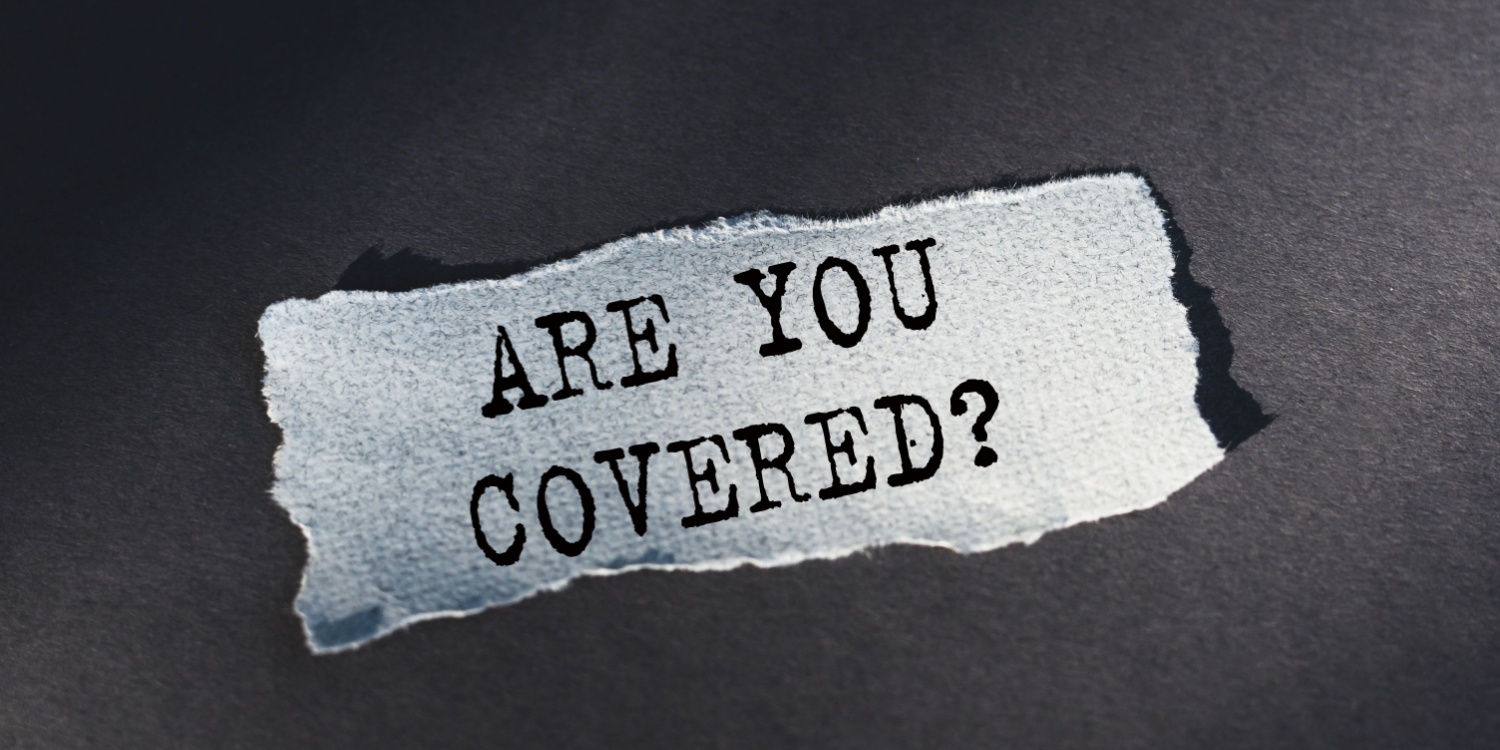Whether you’re a freelancer, contractor, self-employed, or own a limited company, there are certain types of business insurance you might need if you work from home. Ensuring that you have the correct cover is essential to protect you, your business, and your customers.
In this blog, we highlight the key types of business insurance that could be relevant to you if you work from home.
Check your home insurance policy
First, you should check what your existing home insurance covers if you work from home (or plan to). Some providers cover basic administrative professions that involve taking phone calls or using a computer at home.
However, every insurance provider and policy is different, so double-check your current documents to determine what type of business insurance you might need to work from home.
If unsure, let your insurance provider know you’re working from home. They’ll be able to advise if you’re protected, or if you need to take out additional policies.
Now, let’s examine some of the individual types of business insurance that you might need if you work from home.
Professional indemnity insurance
Professional indemnity (PI) insurance protects you if a client takes legal action against you for negligence or damages. It can cover the cost of compensation if you:
- Provide incorrect advice or make a mistake
- Produce false statements about a client
- Share someone’s personal data without permission
- Use someone’s intellectual property without permission
- Lose or damage a client’s documents
PI insurance is useful for most types of businesses, but determining if it’s right for you depends on the type of work you do. You could benefit from PI insurance if you:
- Provide financial or legal advice
- Have access to clients’ confidential information
- Teach a skill or expertise
- Run a creative business, like marketing or design
- Are a healthcare professional
- Provide trade or DIY services
Generally, PI insurance is not legally required to run your business from home (or anywhere else). However, we strongly recommend it, as it could provide vital financial protection if a client sues you for a mistake you’ve made. Without this business insurance, you’ll need to cover the financial fallout yourself, which could hurt both you and your business.
Furthermore, some industries (like accountancy and architecture), regulators, and governing bodies specify that you must lawfully obtain PI insurance before providing professional services.
Therefore, it is essential to check if PI insurance is compulsory in your profession. Depending on the type of work you carry out, your clients might also require this type of business insurance before agreeing to work with you.
Public liability insurance
Working from home could mean minimal physical contact with members of the public. However, if you host clients or customers at home, or if you visit others for work, you’ll need public liability insurance. This protects you if you damage someone’s property whilst carrying out your services, or if they have an injury on your property.
Let’s say you run a photography business and have a home studio. When someone comes in for a photo shoot, they could trip on a loose cable, or you could drop a piece of heavy equipment on their property and damage it.
Or if you visit a customer’s home to carry out a job or give them a quote, you could spill coffee on their furnishings. In these cases, they could sue you for compensation, damage, or medical costs, which public liability insurance can protect you against.
You don’t legally need to have this type of business insurance if you work from home, but remember that as a small business, you likely lack a large organisation’s financial and legal resources, so you probably wouldn’t be able to cover such substantial expenses yourself.
So, it’s best to be safe and protect your business with public liability insurance, even if you work from home.
Product liability insurance
Product liability insurance is typically included in public liability insurance, and protects you against injury or damage claims from a product you make, sell, or supply. This includes online, in which case you will likely be working from home.
For example, someone could receive a faulty product from you, or experience food poisoning or an allergic reaction (if you sell edible goods). This business insurance covers the cost of legal fees and compensation if a customer makes a claim against you.
Again, you don’t legally need this business insurance, but if you have public liability insurance, it’s most likely already included. Otherwise, we strongly recommend taking out a policy if you run a retail business from home.
Employers’ liability insurance
If you employ people, you must legally obtain employers’ liability insurance. This is required no matter where you or your staff work – if they’re remote employees or work from home sometimes, you still need this business insurance.
Employers’ liability insurance protects your employees if they fall ill or get injured whilst working for your business. Employees include full and part-time employees, contractors and freelancers, temporary staff (including apprentices and volunteers), and work experience staff.
The level of cover you’ll need depends on the type of work you do and the size of your business. Generally, most businesses need at least £5 million worth of employers’ liability cover.
Bear in mind that if you do not have adequate insurance, you could face a substantial fine of up to £2,500 every day you do not have appropriate business insurance.
Some companies, primarily those without employees, are exempt from having employers’ liability insurance. However, if you plan to hire staff soon, it’s a good idea to take out this business insurance in advance, to ensure your business and future employees are protected immediately.
You are also exempt if you only employ family members and are not incorporated as a limited company.
Business equipment insurance
Whether you need a laptop to work from home or use specialist tools, you could benefit from taking out business equipment insurance. The items you cover don’t necessarily have to be expensive; anything essential to running your business is worth protecting.
This could be anything from a hairdryer (if you run a hair salon from home) to a top-of-the-range camera (if you’re a professional photographer). It can even include items like card machines, without which you wouldn’t be able to receive payment for your work.
Business equipment insurance covers your kit against damage, theft, and loss, helping you quickly get back on your feet and keeping your business running, even if something happens to your tools.
Business contents insurance
Business contents insurance is similar to business equipment, but it protects more than just your business tools. Your home office might contain other valuables like stock or furnishings, which you can’t afford to lose.
With business contents insurance, you can keep these high-value items safe 24/7, whether you have a home office or work from the garage.
Directors’ and officers’ insurance
Company directors, directors, and managers have great responsibility and ongoing obligations. If you hold one of these leadership roles in your company and work from home, directors’ and officers’ (D&O) insurance is handy.
This business insurance protects you personally rather than your business should someone accuse you of any wrongful acts relating to your position as a director or officer. This includes:
- Breach of trust
- Breach of duty
- Neglect
- Wrongful trading
- Negligent errors
- Health and safety failure
- Breach of company rules and regulations
If someone makes a claim against you for any of the above reasons, D&O insurance can help with the legal cost of defending yourself from allegations, any financial losses you might experience as a result of the claim, and the cost of legal representation.
Cyber insurance
If you work from home, you most likely rely on the internet and technology to run your home-based business. For instance, to communicate with customers, store client data, run your website, and process payments.
Unfortunately, cyber security breaches and threats are a common problem, especially for businesses. According to the government’s cyber security breach survey 2024, half of businesses report having some form of cyber attack in the last 12 months. Figures are higher for SMEs, with 70% saying they’ve had technical breaches.
Cyber insurance could help keep your digital information safe and ensure it doesn’t fall into the wrong hands. This policy can protect you against third-party liability and first-party losses, like fund transfer fraud and system failure.
Thanks for reading
Running a business from home isn’t risk-free. Whether your work is entirely computer-based, you host clients at home, or you’re frequently on the move, several types of business insurance can help safeguard your business and the tools you need to do your job.
We hope this blog has helped you understand the different types of business insurance that could benefit you if you work from home. To find the right protection for your home-based business, don’t forget to shop around for the best deals, coverage, and providers that meet your individual needs.
Please note that the information provided in this article is for general informational purposes only and does not constitute legal, tax, or professional advice. While our aim is that the content is accurate and up to date, it should not be relied upon as a substitute for tailored advice from qualified professionals. We strongly recommend that you seek independent legal and tax advice specific to your circumstances before acting on any information contained in this article. We accept no responsibility or liability for any loss or damage that may result from your reliance on the information provided in this article. Use of the information contained in this article is entirely at your own risk.















Excellent article! Thanks for informing me of these business insurances! I will check them out for my tax planning UK business.
Thank you for your kind comment, David. We’re glad we could highlight this important information for you.
Kind regards,
The QCF Team